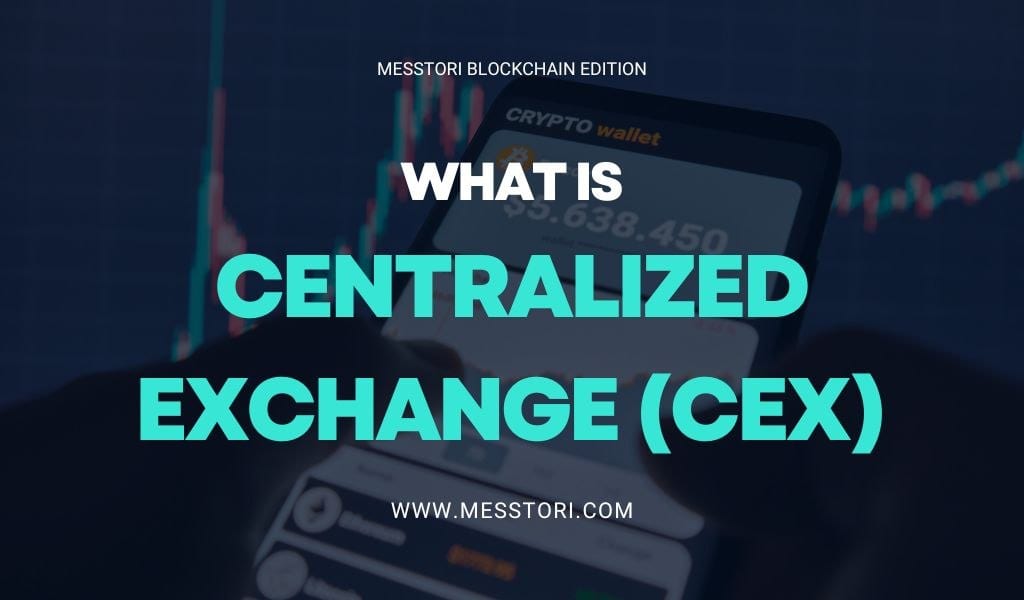In a world increasingly driven by autonomy and transparency, decentralized exchanges (DEXs) have emerged as a game-changing alternative to traditional crypto exchanges. Unlike centralized exchanges (CEXs) where a company manages your funds and trades, a DEX gives you full control, trading directly from your wallet, on your terms.
But how do DEXs really work? Are they safe? And can they replace centralized platforms in the long run?
Let’s dive into everything you need to know about decentralized exchanges (DEX) — how they function, what makes them powerful, and whether they’re right for you.
🧠 What Is a Decentralized Exchange (DEX)?
A decentralized exchange (DEX) is a blockchain-based platform that enables users to trade cryptocurrencies directly with each other, without relying on a central authority. These exchanges use smart contracts to automate trade execution, ensuring trustless peer-to-peer transactions.
Unlike CEXs, where users deposit funds into custodial wallets controlled by the platform, DEX users retain full control over their crypto assets at all times. Funds are exchanged directly from user wallets, minimizing third-party risk.
💡 Want to understand how DEX compares to CEX in detail? Start from the beginning with our full guide: What is a Crypto Exchange?
⚙️ How Do DEXs Work?
DEXs rely on smart contracts, which are self-executing code written on a blockchain. These contracts handle the trade logic — matching buyers and sellers, transferring tokens, and managing liquidity.
There are two main types of DEX mechanisms:
🔹 AMMs (Automated Market Makers)
Platforms like Uniswap and PancakeSwap use AMMs. Users trade against a liquidity pool instead of a traditional order book. Anyone can add liquidity and earn fees.
🔹 Order Book DEXs
Examples include dYdX and Loopring. These platforms mimic the structure of CEXs by letting users place bids/asks. They can be on-chain or off-chain (with on-chain settlement).

🆚 DEX vs CEX: Which One Should You Use?
| Feature | DEX (Decentralized Exchange) | CEX (Centralized Exchange) |
|---|---|---|
| Custody | Users control their private keys | Exchange controls user funds |
| Trust Model | Trustless, peer-to-peer | Requires trust in platform |
| KYC Requirement | Rarely required | Usually mandatory |
| Privacy | High | Lower |
| Liquidity | Lower (especially for new tokens) | High |
| User Experience | More complex for beginners | Intuitive and beginner-friendly |
| Speed | Depends on blockchain network | Instant (internal matching engine) |
| Fiat Support | No | Yes |
| Security Risks | Smart contract bugs, rug pulls | Hacks, custodial risk |
📝 Verdict: Use CEXs for convenience and fiat access; use DEXs for freedom and full control.
Why Are DEXs Gaining Popularity?
As users become more privacy-conscious and decentralized-minded, DEXs are thriving thanks to these key benefits:
- No intermediaries: No one can freeze your account or stop your transaction.
- Self-custody: “Not your keys, not your coins” — DEXs protect your autonomy.
- Permissionless listing: Anyone can launch a token on a DEX without approval.
- Cross-chain support: Some DEXs are multi-chain, supporting BNB, ETH, Polygon, etc.
- Yield opportunities: Provide liquidity, stake LP tokens, and earn yield directly.
🔝 Top Decentralized Exchanges in 2025
Here are some of the leading DEX platforms:
| Exchange | Blockchain | Type | Key Features | ⭐ Popularity |
|---|---|---|---|---|
| Uniswap | Ethereum | AMM | High liquidity, governance via UNI token | ⭐⭐⭐⭐⭐ |
| PancakeSwap | BNB Chain | AMM | Low fees, lottery, NFT integration | ⭐⭐⭐⭐ |
| dYdX | Layer 2 (StarkEx) | Order Book | Decentralized derivatives & margin trading | ⭐⭐⭐⭐ |
| Curve | Ethereum | AMM | Focus on stablecoin swaps | ⭐⭐⭐⭐ |
| SushiSwap | Multi-chain | AMM | Cross-chain support, yield farming | ⭐⭐⭐ |
⚠️ Are DEXs Safe?
DEXs reduce custodial risk, but they come with new types of risk:
- 🐞 Smart Contract Bugs: If the code has vulnerabilities, funds can be lost.
- 🧪 Impersonation & Rug Pulls: Anyone can list tokens, including scam coins.
- 🧵 Network Congestion: Trades may fail or take time depending on gas fees.
✅ Tip: Always verify token contract addresses and use reputable DEX aggregators like 1inch or Matcha.
Who Should Use DEXs?
DEXs are best suited for:
🎯 Who Should Use a Decentralized Exchange (DEX)?
- 🔐 Privacy-focused traders: Want to trade without KYC and maintain anonymity.
- 🧠 Advanced crypto users: Comfortable managing wallets and interacting with smart contracts.
- 🪙 Yield seekers & DeFi users: Looking to earn passive income via liquidity pools and farming.
- 🌍 Global users in restricted countries: Need access to tokens that may not be listed on CEXs.
- 🚀 Early adopters: Interested in discovering new tokens and projects before they hit major exchanges.
Final Thoughts
Decentralized exchanges (DEXs) are more than a trend — they’re a foundation of the decentralized economy. As blockchain evolves, DEXs will become faster, more scalable, and more user-friendly.
While they may not fully replace CEXs soon, DEXs offer unparalleled control, privacy, and innovation. Knowing how to use both CEX and DEX platforms gives you the flexibility to trade, earn, and grow in the Web3 world.
📚 Glossary – Key Terms in DEX & DeFi
FAQ – About Crypto exchange
Yes, trading on a DEX (Decentralized Exchange) is decentralized. It allows users to trade directly from their wallets using smart contracts, without third-party control.
Uniswap, PancakeSwap, and dYdX are among the top DEXs, each offering unique features depending on the blockchain network and user needs.
Binance is a centralized exchange (CEX), although it also launched Binance DEX as a separate decentralized platform.
Coinbase is a centralized exchange (CEX) based in the US, offering fiat-to-crypto services with full regulation and custody management.
DEXs reduce custodial risk but come with smart contract vulnerabilities. Safety depends on user knowledge and platform reputation.
Most DEXs do not require KYC, allowing users to trade anonymously. However, this may vary depending on the region and front-end interface used.
Generally, DEXs don’t support fiat purchases directly. You’ll need to buy crypto on a CEX first, then transfer to your wallet for DEX use.
You can trade most ERC-20, BEP-20, and other tokens on supported chains. DEXs often list new or smaller-cap tokens before CEXs.
Yes. You can provide liquidity, farm yield, or stake LP tokens to earn rewards on many decentralized exchanges.
Ethereum, BNB Chain, Polygon, Arbitrum, Solana, and Avalanche all support various DEXs with different levels of liquidity and fees.
- Fintech24h and Umbala Labs Partner to Revolutionize Decentralized Finance with XLP Network
- BXClusive Season 2 – Earn Points, Claim Rewards Up To $750,000
- What is Neutron (NTRN)? All information about NTRN token
- Top 40 Crypto Tools powerful for Analysis, Trading & Research
- Core concepts of Cryptocurrency Marketing: Build trust and target investors








